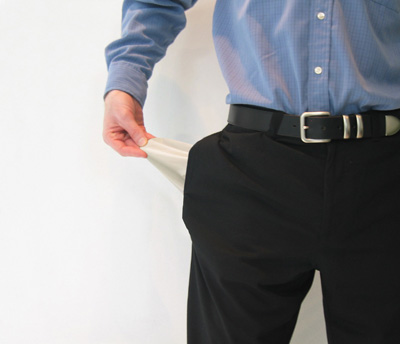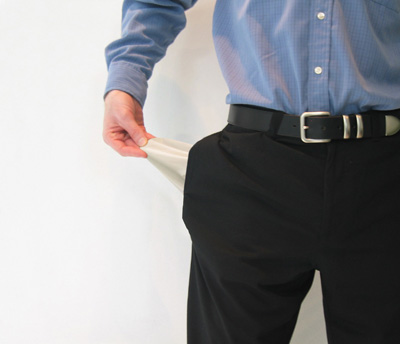 This time last week I rattled off the world’s laziest column. I was struggling against my book deadline which expired 24 hours later and I simply didn’t have time to write anything else. This week should have been different; I should have finished the book days ago and now be sitting on a beach in the Caribbean, sipping a Diet Coke martini and lazily writing a long, well-thought-out column about some vital issue of the day. Why it’s inadvisable to write a mea culpa in the passive voice (otherwise it’s just a ‘culpa’). Something like that.
This time last week I rattled off the world’s laziest column. I was struggling against my book deadline which expired 24 hours later and I simply didn’t have time to write anything else. This week should have been different; I should have finished the book days ago and now be sitting on a beach in the Caribbean, sipping a Diet Coke martini and lazily writing a long, well-thought-out column about some vital issue of the day. Why it’s inadvisable to write a mea culpa in the passive voice (otherwise it’s just a ‘culpa’). Something like that.
And yet, and yet – the fact that, seven days later, I’m still sitting at my desk and I still haven’t delivered the manuscript to my publisher, should give a hint to how perilous things are right now. I’m Wile E. Coyote about five seconds after he looks down and realises he’s overshot the cliff. And yet despite my urge to sack off this week’s column and focus on lessening the size of crater I’m about to leave in the desert floor, there’s something on which I can’t remain silent on any longer. Four words which I’ve been seeing again and again all week, and which threaten to drive me mad…
“A victory for authors.”
That’s how some people are describing Amazon’s capitulation to Macmillan over the pricing of ebooks. They say it in the same tone as people describe more expensive milk as “a victory for farmers” or subsidies for domestic cars as “a victory for American auto workers”, which is to say the same tone as you might use to pity a cat with three legs.
Poor authors, after all, need all the help they can get. They work for years on their Great Novel, probably subsisting on stale cheese and rats’ milk as they do so, and what thanks do they get? A measly royalty, chipped away at by heavy discounting in book stores. Thank God then for Macmillan taking a stand against Amazon and its aggressive discounting. And thank Jesus for all of the other publishers bravely following them.
Oh please.
First a few facts, in the form of a disclosure statement. I am an author. Before that I was a publisher. Although my publisher is now Hachette, I’ve been published in the past by Macmillan, both in the UK and the US. Macmillan were a partner of the publishing house I co-founded, and were responsible for distributing all of our titles. Richard Charkin, the former CEO of Macmillan, was an advisor. I like Macmillan. I feel, then, somewhat qualified to call bullshit on the claim that this deal is good for anyone – including Macmillan and especially including authors.
Much like the monarchy, Macmillan started life in Britain even though it’s now controlled by Germans. Its British roots go to the very heart of their negotiations with Amazon. In America, books have always been available at a discount – with book stores relatively free to set prices as they wished. Of course, publishers still choose their wholesale price, but there’s nothing to stop, say, Borders from heavily discounting bestsellers to get people through the door. Publishers didn’t necessarily like this as it led to booksellers demanding more aggressive discounting (sometimes more than 60% off the cover price), but they didn’t have much of a choice but to accept. The fact is that publishers couldn’t justify opening up their own stores, so if they wanted readers to be able to actually read their books, they had to keep bookstores happy.
But that’s not how things used to work in the UK.
In the UK, way back in 1900, publishers corralled retailers into the Net Book Agreement (NBA); an agreement between British publishers and booksellers that books would be sold at the price specified on the cover. If a bookseller offered so much as a penny discount, then the publisher would simply withdraw all of their books from that bookseller and encourage other publishers to do the same. The arrangement suited everyone; book shops were the only place to buy new books and the NBA meant they didn’t have to worry about rivals undercutting them; this particularly benefited independent bookshops. For their part, publishers knew exactly how much they’d be getting for each title and authors knew how much of that would form their royalty.
It took until the late 90s for the Restrictive Practices Court to declare that the Net Book Agreement was anti-competitive and should be scrapped. Shortly afterwards, Borders entered the UK market, hundreds of UK independent bookshops went bankrupt and publishers decided to change their contracts with authors. Now, instead of being based on the cover price of a book, the author’s royalty would be based on ‘net receipts’, which is to say the price that publishers actually received from bookshops.
Since 1997, that’s how things have stayed. Authors learned to adjust pretty quickly, especially as fewer than 20% of titles actually ever earn back their advance and start paying royalties. But publishers have remained annoyed. Deep discounting cuts directly into their profits. There was one area, though, where publishers could still make a killing on every sale: hardback books. The fact is that printing a hardback book, as opposed to a paperback, costs a matter of pennies more. But there is a perception amongst book buyers that they are far more expensive, a perception that it has been in no one’s interest to correct as it allows them to be sold for twice the price of paperbacks. Even with booksellers demanding deep discounts, the publishers still make a ton of profit on each hardback sale. By releasing the hardback book months before the paperback, publishers can subsidise a huge amount of their business from hardback sales, while booksellers can still discount highly to get people through the door.
And then along came the Kindle and everything went to hell.
Before e-readers, publishers didn’t care about ebooks. You could tell this by the fact that they gave authors really generous royalties on their electronic sales. It was an easy item to appear generous over – so they could fuck you on the paperback royalty. No one read books on their computer so it was no huge loss. For the same reason, publishers were happy to release ebooks at the same time as hardbacks – it wasn’t like the sales of the former were cannibalizing the latter.
But now, with ebook sales soaring, and with the iPad looking to make them soar even higher, publishers are panicking. Thanks in part to deep ebook discounting by Amazon, but also because the same people who can afford hardback books are the same people who can afford e-readers, people are starting to buy ebooks where they once bought hardbacks. The only cash-cow remaining in publishing is disappearing, like CD sales for music, and DVD sales for movies.
The publishers’ answer to this? A de facto return to the Net Book Agreement, for the whole world. Publishers don’t need booksellers as much as they used to. If an ebook isn’t available from one place – Amazon, say – it will be from somewhere that’s just a click away. Amazon on the other hand, can’t sell Kindles if a huge chunk of popular books aren’t available on it. Furthermore, thanks to the ease of distributing an ebook directly to the customer, there’s nothing stopping a publisher – or group of publishers – from creating their own store. Most sell ebooks directly online already. The balance of power has swung back to publishers, and they’re making the most of it, especially when then know they can play Amazon off against Apple.
For the first time in the UK since 1997, and ever in the US, publishers are able to set – and enforce- their own prices on ebooks. And they will; not to make a fair return on ebooks but rather to cripple their sales in order to protect early hardback book sales. They’ve admitted as much themselves, saying that prices will start high on hardback release, before dropping steadily over time.
The idea that this benefits anyone, least of all authors, is laughable. Every day, thousands more book lovers move to ebooks. These are people who devour books, and who are attracted by the convenience of getting new releases delivered instantly. Yes, there’s a chance that they’ll keep buying hardback books if ebooks go up in price. But now they’ve already invested in ereaders so there’s even more of a chance that they’ll simply turn to piracy to get their fix. It’s like if record labels had tried to encourage people to keep buying CDs by raising the price of mp3 downloads (or slapping restrictive DRM on them). All that would likely have done is drive even more people to Limewire.
Piracy isn’t an industry-killing problem for publishers yet, and if they can keep prices low enough and delivery mechanisms convenient enough, it could even stay that way. Macmillan’s attempt to bring back the NBA though, while it might result in a few more hardback sales in the short term, can only end in disaster for everyone concerned.
As an author, I don’t see a pricing strategy that encourages piracy as a victory. I see it as a backwards-looking quick fix that will do far more long-term harm than short-term good.
Youa culpa, Macmillan.
